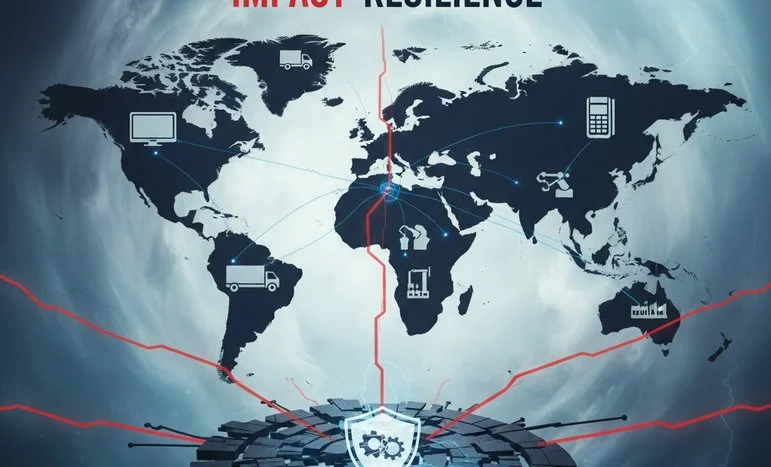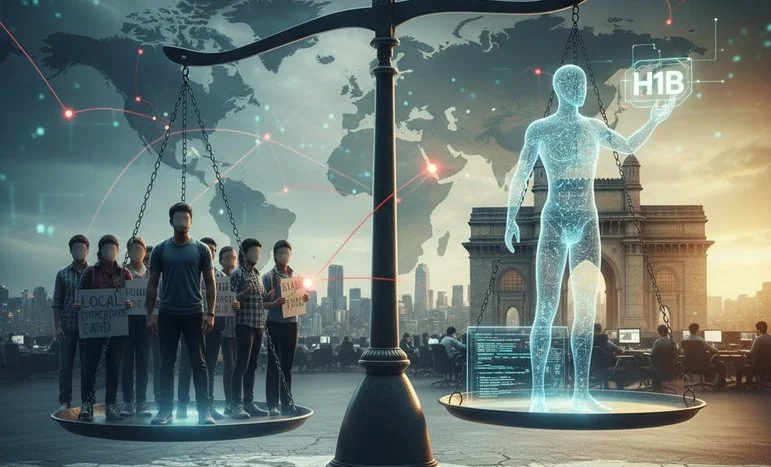
Technological Dependency: Balancing Innovation with Human Skills
The rapid advancement of technology has fundamentally reshaped how humans live, work, and interact with the world around them. Devices that once felt optional have become deeply embedded in daily routines, influencing communication, decision-making, productivity, and even emotional regulation. Smartphones, artificial intelligence–powered assistants, automated financial systems, and algorithm-driven platforms now guide countless micro-decisions each day, from navigation and scheduling to entertainment and purchasing choices. While these developments have undeniably improved efficiency, accessibility, and global connectivity, they also introduce a less visible but increasingly significant concern: technological dependency. As reliance on digital tools grows, the risk emerges that essential human skills may gradually weaken, leaving individuals and societies less resilient, less adaptable, and more vulnerable when systems fail or behave unpredictably.
Technological dependency does not arise suddenly but develops through layers of convenience that accumulate over time. Constant connectivity through mobile devices and cloud-based services allows information to be accessed instantly, reducing the perceived need for memory retention, planning, or independent verification. Artificial intelligence and automation increasingly manage tasks that once required human judgment, ranging from navigation and scheduling to complex decisions in finance, healthcare, and industrial operations. Smart home systems and Internet of Things devices automate daily chores, streamlining life but simultaneously reducing opportunities to practice basic mechanical, organizational, and problem-solving skills. Social media platforms and instant messaging tools further reinforce dependency by prioritizing rapid, low-effort communication over deeper, sustained interpersonal interaction. Individually, these tools offer genuine benefits, but collectively they risk diminishing human capabilities if used without awareness or balance.
One of the most significant areas affected by technological dependency is cognition. Reliance on digital storage and search engines for information can weaken memory recall, as individuals become accustomed to outsourcing retention rather than exercising it. When answers are always immediately available, the mental effort required to remember facts, analyze patterns, or reconstruct information declines. Similarly, problem-solving abilities may erode when algorithms consistently provide instant solutions. Navigation apps, recommendation engines, and automated planning tools reduce the need to reason through alternatives, evaluate trade-offs, or anticipate consequences. Over time, this can narrow critical thinking skills and reduce confidence in one’s ability to solve problems independently. Attention and focus are also impacted, as constant notifications, multitasking, and rapid content consumption fragment concentration and make sustained, deep engagement increasingly difficult. In environments where automation dominates decision-making, excessive trust in algorithmic outputs may further undermine human judgment, particularly when users fail to question assumptions, data quality, or contextual limitations.
Beyond cognition, technological dependency also shapes social and emotional development in subtle but meaningful ways. Digital communication offers speed and reach, but it often lacks the richness of face-to-face interaction, including nonverbal cues, emotional nuance, and real-time feedback. As individuals rely more heavily on screens to connect, opportunities to practice empathy, negotiation, conflict resolution, and emotional regulation may diminish. Constant engagement with devices can heighten stress and anxiety, especially when social validation becomes tied to metrics such as likes, shares, or online visibility. Emotional regulation may suffer as individuals turn to technology for distraction or reassurance rather than developing internal coping mechanisms. Over time, excessive reliance on technological solutions can also affect identity and self-efficacy, reducing confidence in personal abilities to navigate challenges without external assistance. At a broader level, cultural practices and community traditions may weaken as digital alternatives replace shared physical experiences and collective rituals.
The economic and workforce implications of technological dependency are particularly pronounced, as automation and artificial intelligence transform professional environments at an accelerating pace. While technological tools can enhance productivity and reduce error rates, over-reliance on them can create skill gaps that leave workers unprepared for unexpected disruptions. When systems fail, produce biased outputs, or encounter novel conditions, employees who lack foundational skills may struggle to respond effectively. Excessive automation may also hinder the development of emerging skills, as individuals become operators rather than thinkers, executing predefined processes rather than engaging in creative or analytical work. Innovation itself may be at risk if human curiosity, experimentation, and hands-on problem-solving decline in favor of automated optimization. Ethical concerns further complicate this landscape, as algorithmic decision-making in areas such as finance, healthcare, and public policy demands human oversight to prevent harm, bias, or unintended consequences. Without strong human involvement, accountability can become diffuse and opaque.
Addressing technological dependency requires deliberate strategies that balance innovation with the preservation and strengthening of human skills. Education and training play a central role in this effort. Digital literacy should extend beyond technical proficiency to include an understanding of technological limitations, biases, and potential risks. Learners must be encouraged to question outputs, verify sources, and recognize when human judgment is essential. Critical thinking programs that emphasize reasoning without immediate reliance on automated tools can help sustain cognitive flexibility and analytical depth. Skill maintenance initiatives, particularly in professional settings, can ensure that individuals continue to practice manual, analytical, and interpersonal competencies alongside automated systems rather than abandoning them entirely.
Mindful technology use is equally important at the individual level. Periodic disconnection from devices can strengthen focus, memory, and emotional balance, allowing the brain to recalibrate away from constant stimulation. Digital detox practices, even when brief, can reinforce the value of sustained attention and in-person interaction. Controlled automation offers another path forward, where technology is intentionally applied to repetitive, high-risk, or efficiency-driven tasks while humans remain actively involved in decision-making and oversight. Regular personal assessments of skills related to memory, planning, communication, and problem-solving can help individuals identify areas where dependency may be eroding capability, prompting targeted practice and improvement.
Organizations also play a critical role in maintaining balance between technology and human skills. Hybrid systems that combine automated efficiency with human judgment can enhance accountability and resilience, ensuring that critical decisions are not delegated entirely to algorithms. Training programs that prepare employees for system failures or unexpected scenarios can prevent overdependence and promote adaptability. Encouraging innovation through experimentation, collaboration, and creative problem-solving reinforces the complementary relationship between human ingenuity and technological power. Rather than replacing human contribution, technology should amplify it by freeing time and cognitive resources for higher-level thinking.
At the policy and societal level, ethical considerations must guide the integration of advanced technologies. Transparency in algorithmic decision-making is essential to maintain trust and accountability, particularly when systems influence livelihoods, health outcomes, or civic participation. Public awareness initiatives can educate individuals about the cognitive, social, and emotional risks associated with excessive technological reliance, empowering them to make informed choices. Ethical standards should prioritize human agency, ensuring that technology supports autonomy rather than undermining it. Regulation, when thoughtfully designed, can encourage responsible innovation while safeguarding fundamental skills and values.
Looking ahead, the risks associated with technological dependency are likely to evolve as emerging technologies become more deeply integrated into human life. Artificial intelligence systems with increasing autonomy will require heightened levels of human oversight to prevent errors and misuse. Wearable and implantable devices may blur the boundary between assistance and reliance, raising questions about autonomy, privacy, and resilience. Virtual and augmented reality environments, while offering immersive experiences, may reduce exposure to real-world problem-solving if overused. Neural interfaces and brain-computer technologies promise unprecedented enhancement of human capability but also carry the risk of creating dependence on external systems for cognition itself. Proactive planning, ethical foresight, and continuous skill development will be essential to navigate these advances responsibly.
Technological progress offers extraordinary opportunities for efficiency, innovation, and connection, but its benefits are maximized only when paired with conscious effort to preserve and strengthen human skills. Excessive reliance on devices, artificial intelligence, and automated systems can gradually erode cognitive flexibility, social competence, emotional resilience, and practical problem-solving ability. A balanced approach that integrates education, mindful use, organizational responsibility, and ethical governance can ensure that technology remains a tool rather than a crutch. By actively nurturing memory, judgment, creativity, and interpersonal understanding, individuals and societies can harness technological advancement without sacrificing the abilities that define human agency. In the modern era, technology should empower people to adapt, think critically, and thrive, not replace the very skills that make those outcomes possible.
We appreciate that not everyone can afford to pay for Views right now. That’s why we choose to keep our journalism open for everyone. If this is you, please continue to read for free.
But if you can, can we count on your support at this perilous time? Here are three good reasons to make the choice to fund us today.
1. Our quality, investigative journalism is a scrutinising force.
2. We are independent and have no billionaire owner controlling what we do, so your money directly powers our reporting.
3. It doesn’t cost much, and takes less time than it took to read this message.
Choose to support open, independent journalism on a monthly basis. Thank you.



















